Adipotide (FTPP) 10mg | 2mg | 5mg | 10mg
$80.00 – $195.00
Adipotide, also known as FTPP, is an experimental weight loss treatment that kills fat cells by targeting the blood supply of those cells
Adipotide (FTPP) COA CERTIFICATE
Wis Adipotide?
Adipotide (a.k.a. FTPP or proapototic peptide) kills fat cells, plain and simple, by targeting the blood supply of those cells. Interestingly, adipotide is able to discern the blood vessels in fat cells from the blood vessels throughout the rest of the body and is therefore highly selective. Research in monkeys shows that adipotide not only causes weight loss, it actually boosts insulin sensitivity and offsets some of the effects of type 2 diabetes.
HPLC Adipotide (FTPP) Certificate
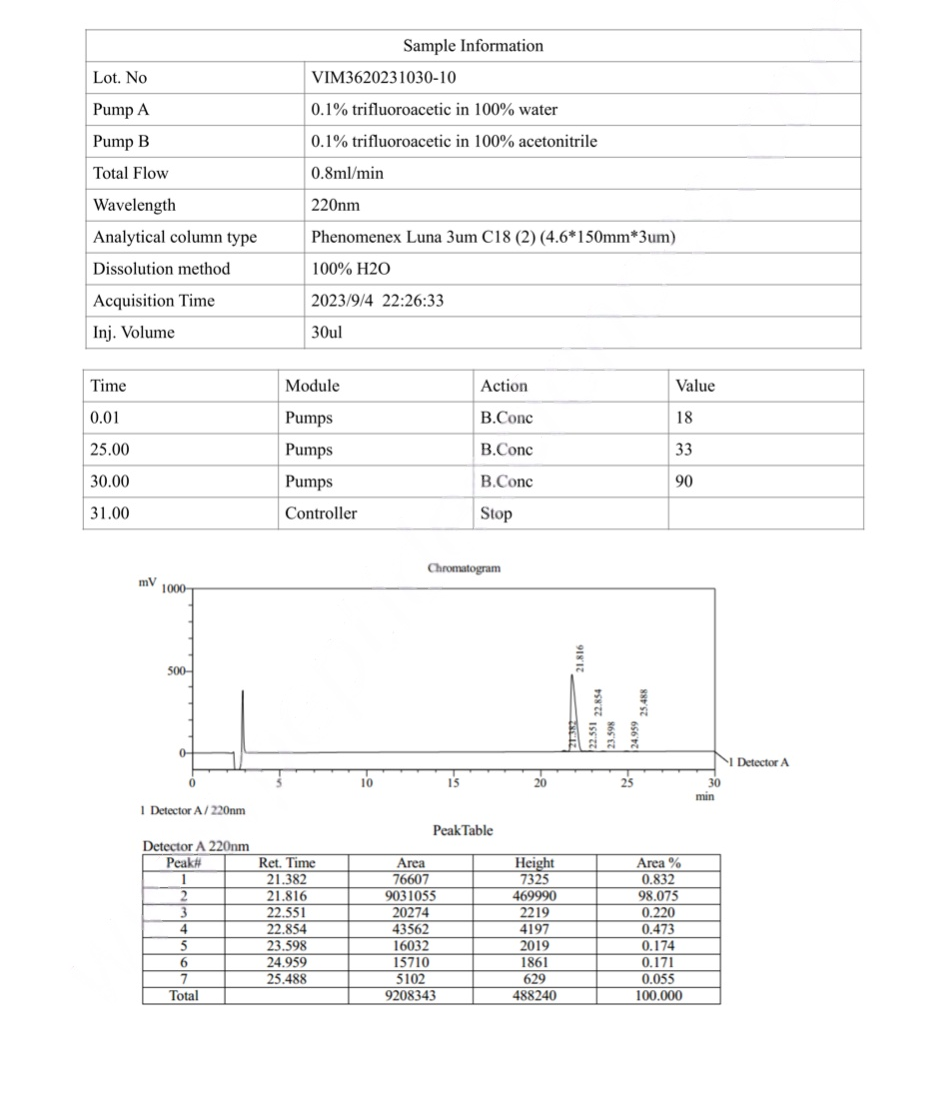
MS Adipotide (FTPP) Certificate
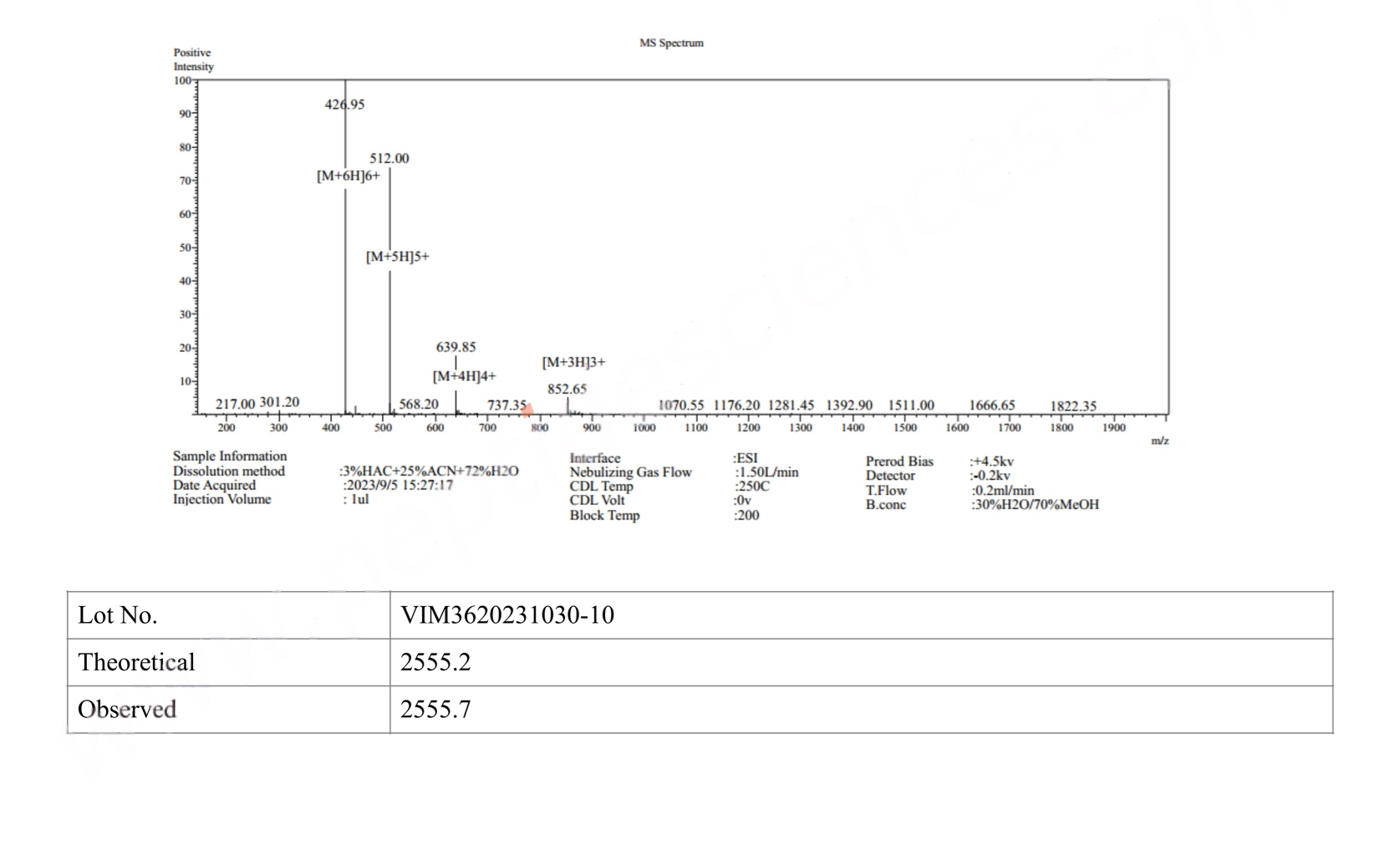
Adipotide Research
1. Adipotide And Fat Loss
Adipotide was developed and placed into phase I clinical trials in 2011 to investigate its ability to kill fat cells. Tests in rhesus monkeys revealed that adipotide causes targeted apoptosis in the blood vessels of white adipose tissue (fat). Without a blood supply, the fat cells simply died. The net result was rapid weight loss, rapid decrease in body mass index (BMI), and improved insulin resistance characteristics. Interestingly, treatment with adipotide and subsequent fat loss not only improved weight, but actually contributed to changes in eating behavior. Monkeys who lost weight with adipotide also showed a decrease in food consumption[1]
The targeting vess serving ce may be mediate Dy protein receptor called prohibitin. Prohibitin is a membrane protein that may only be found in blood vessels serving white fat and in cancer cells. It has been demonstrated that adipotide associates with this protein[2]. If it turns out that prohibitin is found only in fat vasculature and cancer tissue, then adipotide testing will be responsible for identifying a fat-specific target that can be used not just for therapeutic purposes, but for diagnostic purposes as well.
2. Adipotide and Cancer
Prohibitin, the molecule that adipotide likely targets in fat cells, has been associated with certain types of cancer[3]. Cancer cells are known to require substantial blood supplies in order to grow and metastasize. The ability to target prohibitin in cancer cells may provide for advanced therapies that target cancer without harming surrounding tissues.
3. Adipotide and Glucose Tolerance
Glucose tolerance is a term that refers to higher than normal levels of blood sugar. The condition is generally diagnosed with a blood test and confirmed by testing fasting glucose levels or by administering a glucose tolerance test in which a set amount of sugar is consumed and then blood levels of sugar are measured. Glucose tolerance is a proxy measure for diabetes, with increased glucose tolerance indicating a trend toward diabetes
Treating elevated glucose levels can be done with diet and exercise, but these methods require dedication and motivation. They also take considerable time to have an effect. In general, most people with impaired glucose tolerance go on to develop overt type 2 diabetes and require drugs like metformin and, in some cases, insulin. Research into adipotide has revealed that the peptide produces rapid and weight-independent improvement in glucose tolerance[+]. The latter part is critical, because it indicates that a reduction in white fat by adipotide is effective in reducing glucose tolerance regardless of the impact on weight. In other words, it is the fat loss that is important, not the weight loss. These findings not only open the pathway for developing new treatments for pre-diabetes and diabetes, they help to clarify and explain the mechanisms that lead to diabetes in the first place.
There is some argument as to whether adipotide directly causes fat loss or simply decreases food intake which indirectly leads to fat loss[4]. It is likely that adipotide directly causes fat loss. This hypothesis is supported by the fact that the peptide causes changes in fat cell density without causing weight loss and affects glucose tolerance without causing weight loss.
Future Adipotide Research
The primary area of adipotide research is in fat loss and diabetes. The peptide targets specific cells in the blood vessels that supply fat tissue, causing those blood vessels to die and, as a result, causing the fat cells they supply to die. Adipotide is an anti-angiogenic peptide, which means it targets blood vessels. Anti-angiogenic molecules are of keen interest right now in the treatment of cancer. There is limited, but promising research, on the role of adipotide in cancer.
Adipotide exhibits minimal side effects, low oral and excellent subcutaneous bioavailability in mice. Per kg dosage in mice does not scale to humans. Adipotide for sale at Peptide Sciences is limited to educational and scientific research only, not for human consumption. Only buy Adipotide if you are a licensed researcher.
| Quantity | 2mg * 10 vials, 5mg * 10 vials, 10mg * 10 vials |
|---|
5 reviews for Adipotide (FTPP) 10mg | 2mg | 5mg | 10mg
Add a review Cancel reply
Related products
Peptides
Peptides
Peptides
Peptides
Peptides
Peptides

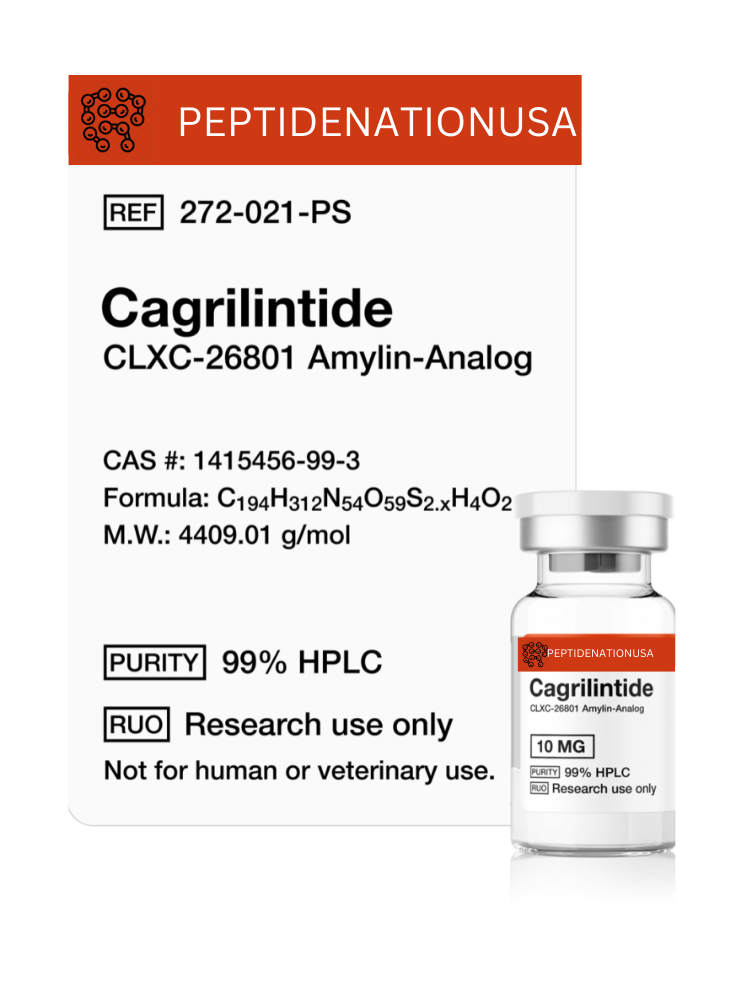
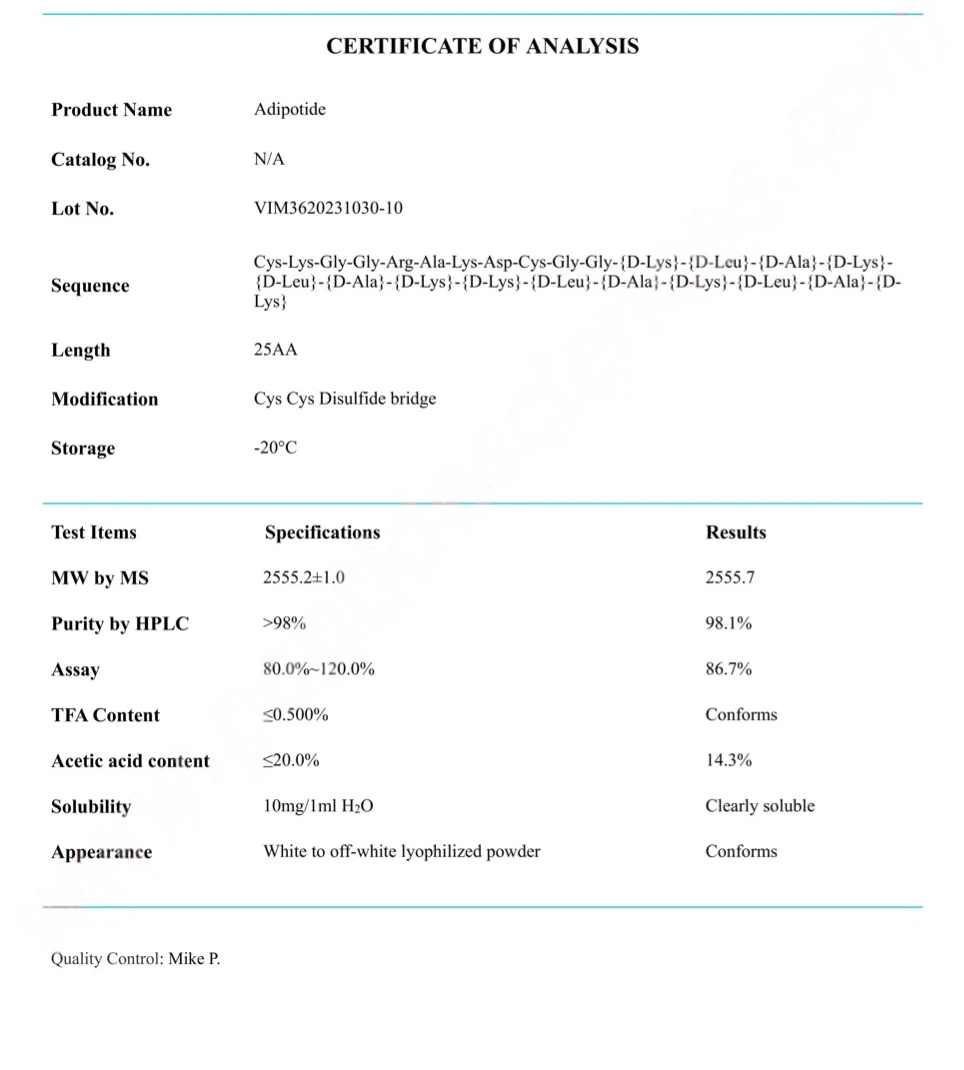


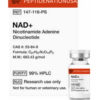
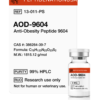


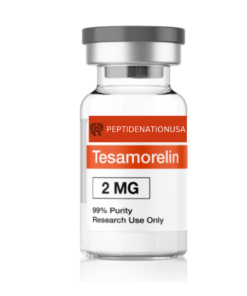






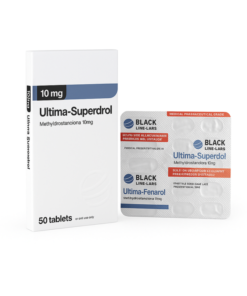
Sarah Mitchell –
Cagrilintide helped me manage my appetite better than expected. Noticed a significant drop in cravings within the first week.
Jason Lee –
Really impressed with the effects. Combined with clean eating, I saw noticeable weight loss and better energy throughout the day
Amanda Carter –
Mild nausea at first, but that passed quickly. Definitely curbed hunger and made portion control easier
Robert Hernandez –
Works as intended. Using it for research and the results have been promising. Fast shipping too.
Emily Johnson –
This product gave a nice boost to my satiety levels. No jittery side effects, just smooth appetite control